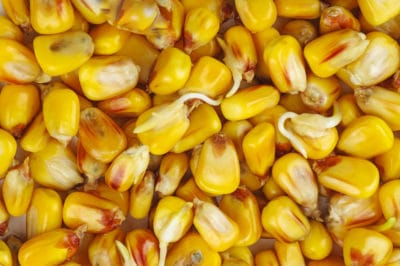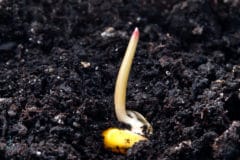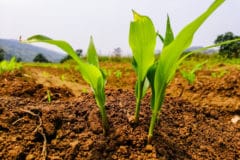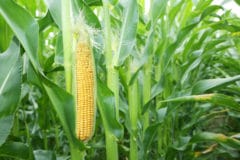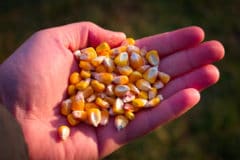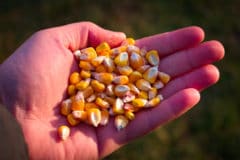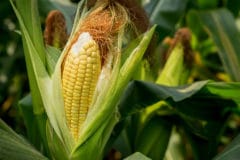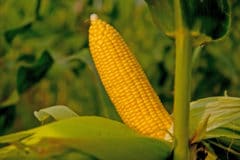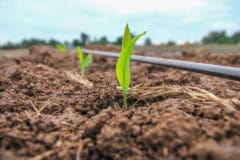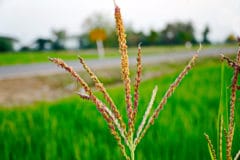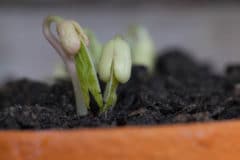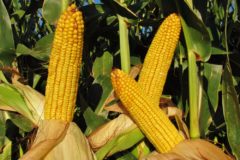What Is Germination?
When your corn seed germinates, the outer hull of the shell becomes soft and allows a small sprout to break through it. The seed provides the energy a corn plant needs to form shoots and roots.
If the corn seeds you plant do not germinate, you will not have a corn crop.
Tip: It is common to have some seeds fail to germinate. You can reasonably expect to have approximately 75% of your seeds grow.
Problems with Germination
There are several different reasons your corn seeds might fail to germinate.
- The ground was too cold when you planted the seeds. Corn does not germinate well in temperatures less than 45°F (7°C).
- Your seeds were old and dried out or not stored correctly.
- You did not plant your corn in full sun.
If you know that you have planted your corn seeds at the correct temperature and that they have plenty of sun in which to grow, your problem may be the seed itself.
Tip: If you purchase corn seeds from a nursery or garden center, check the expiration date on the packet. If the seeds are over a year old, you may see less germination.
General Tips for Germination
If you are not sure if your corn seeds are going to germinate and produce plants, you can choose a few seeds and set them in between two damp paper towels and place them in a sunny location. If the seeds are viable, you will see small sprouts emerge in about seven to ten days.
If they do not sprout, you can assume the rest of the seeds in the packet will not germinate and throw them away. If at least half of them grow, you should be able to plant the rest of the seeds and have a decent corn harvest.
Once your corn seeds germinate, half the battle is one, and you can expect to see corn seedlings emerge shortly after!
